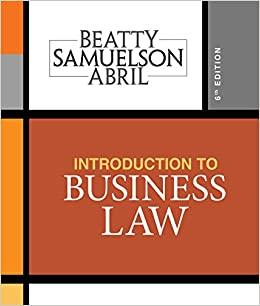Question
Y5 1. Imagine that initially economic agents believe that P(A B) = p > 1 2 . Furthermore, imagine that investors receive signals that reveal
Y5
1. Imagine that initially economic agents believe that P(A B) = p > 1 2 . Furthermore, imagine that investors receive signals that reveal the truth with probability q > p > 1 2 . Consider a sequential game with N agents with agent 1 making her choice first. Assume that signals received are only privately known, but choices are publicly observable. Imagine that the sequence of signals received is given with s1 = A, s2 = s3 = ... = sN = B. What is the choice of the third agent? a) A b) B c) the choice depends on the precise value of q d) the third agent is indifferent between the two options
a) A b) B c) the choice depends on the precise value of q d) the third agent is indifferent between the two options
answer a provide reason
2. Imagine that initially economic agents believe that P(A B) = p > 1 2 . Furthermore, imagine that investors receive signals that reveal the truth with probability q > p > 1 2 . Consider a sequential game with N agents with agent 1 making her choice first. Assume that signals received are only privately known, but choices are publicly observable. Imagine that the sequence of signals received is given with s1 = A, s2 = s3 = ... = sN = B. Would the second agent benefit if she could change the order of moves with agent 3?
a) Yes b) No c) Only if the third agent had A as her signal d) Only when the value of q is large enough
answer b provide reason
Step by Step Solution
There are 3 Steps involved in it
Step: 1

Get Instant Access to Expert-Tailored Solutions
See step-by-step solutions with expert insights and AI powered tools for academic success
Step: 2

Step: 3

Ace Your Homework with AI
Get the answers you need in no time with our AI-driven, step-by-step assistance
Get Started


